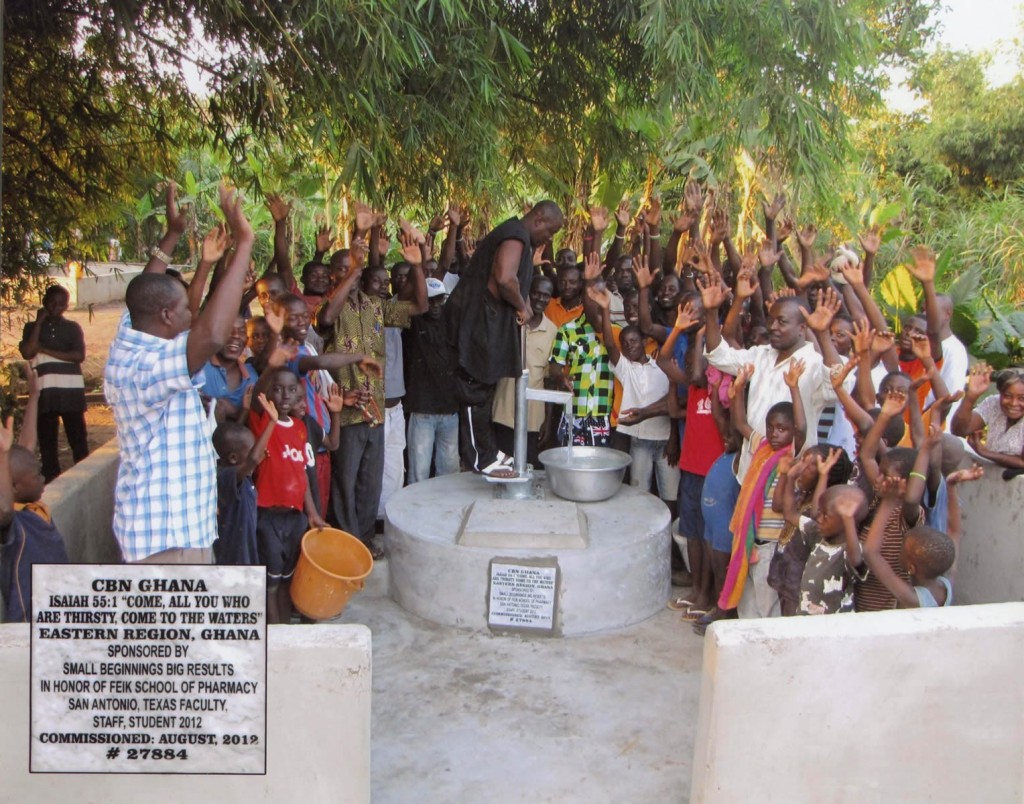
People of the village of Awuku Gua in Ghana, Africa gather for the dedication of the water well funded by the FSOP’s Pennies for Pure Water campaign.
By Brance Arnold ’10 MA
Little gestures can often achieve paramount results. The Feik School of Pharmacy (FSOP) recently implemented a philanthropic program utilizing the idea of small generosities to make a global impact, Pennies for Pure Water.
Early in the spring semester of 2012, Dr. Arcelia Johnson-Fannin, founding dean of the FSOP, asked Andrew Prado, former chairman of the Dean’s Student Council, if the students might be interested in raising funds for a local non-profit to finance the building of a water well in Ghana, Africa. The nonprofit, Small Beginnings—Big Results (SBBR), is a San Antonio based organization whose main goal is to provide clean drinking water to communities in Africa through the building of wells and to assist faith-based organizations in meeting their goals of helping those in need.
“Last November, I thought to myself, ‘My students are constantly doing things. They’re involved in health fairs. They’re raising money for any initiatives, but we’re not doing enough globally as a school,’” said Johnson-Fannin.
Two years prior, she decided to build her own well after being inspired by the efforts and tenacity of Dr. Patricia Lieveld, FSOP professor of pharmacy practice. Lieveld collaborated with the Global Women’s Water Initiative, as part of the Women’s Earth Alliance, to train selected women in Bukoba, Tanzania to build rainwater harvester tanks. As a result, the women have built five tanks for their community in less than a year.
“I believe my struggles, discouragement, and ultimately persistence is what has inspired Dean Johnson-Fannin with her own clean water project,” Lieveld said.
Johnson-Fannin serves as vice president of the Board of Directors for SBBR.
“It was Dr. Lieveld’s work that stimulated me to say, ‘Here I am on a board trying to raise money, but I need to do something myself,’” said Johnson-Fannin. “So, I built my first well and dedicated it to my parents.”
She chose to build a well every 18 months by contributing $100 per month to SBBR until she raised enough funds to finance the projects. And when her first well was completed, she decided to approach the council.
“I spoke with my student council president so he could take it back to the council and see if they were interested,” she explained. “I gave them a picture of my well and some information.”
The approximate cost to build a well in Africa is $1800. Johnson-Fannin informed her students she would contribute the remainder of the expense if a goal of $1500 was achieved. “If we could get 300 people out of the 450 plus members of the FSOP faculty, staff and students to contribute five cents a day, five days a week, for five months, we would have the $1500 and I would personally pay the rest, so pennies a day for pure water,” expressed Johnson-Fannin.
Prado took the proposal back to the council of 17, consisting of the class presidents and all active pharmacy organizations, and found they were so enthusiastic about the opportunity that they brainstormed everything over one meeting. By the time he met with Johnson-Fannin to confirm student participation, cardboard collection stations had been created and donations were underway.
The collection stations, which were designed by students to resemble water wells, were placed in each of the three main classrooms at the FSOP. Donations from faculty, staff, students and alumni were collected, all on an anonymous basis. “We don’t know which students participated and which students didn’t; that’s the beauty of it,” said Johnson-Fannin. “We don’t know who put in a lot or a little, but collectively we met our goal.”
By mid-May, the school had collected $2000, more than enough to finance the well.
Prado said classmates Cesar Trevino and Alex Green, vice chair and secretary, helped make Pennies for Pure Water a success by sending out numerous email reminders to students, faculty and staff. Green helped motivate students by making weekly announcements to each class during breaks. The amount of money collected was placed on a graph and displayed on the collection wells to motivate each class into a competition. According to Prado, donations received from alumni helped make the goal a reality.
Upon learning from Johnson-Fannin that the FSOP was going to participate in the Pennies for Pure Water campaign, Mattie Kinard, founder and director of SBBR, said the board was overjoyed. “I was very emotional and tears came to my eyes,” said Kinard. “The Board of Directors was excited.”
When the amount needed was collected, the student council presented Kinard with a check to fund the well. The well was built in honor of the FSOP and dedicated in the village of Awuku Gua, Akiwapem North Municipal District, Eastern Region, Ghana on Aug. 31, 2012. A photo of the dedication is displayed in the FSOP’s foyer.
Kinard established SBBR in 2005 after several visits to Africa where she discovered the difficulty of attaining clean water in African villages.
“Fortunately, the willingness to work and discover ways to ascertain clean water exists; unfortunately, the financial resources do not,” said Kinard. “I was struck by the relatively low cost of building functional water wells and the enormous impact it could make in the life of a village. Thus began the idea of the non-profit, Small Beginnings—Big Results.”
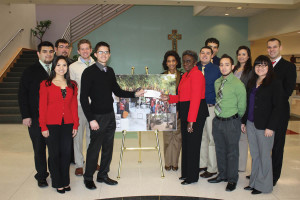
Former Chairman of the Dean’s Student Council Andrew Prado, along with the council and Dr. Johnson-Fannin, presents a check to fund the building of the well in Ghana to Kinard.
Kinard explained that in Africa, people, particularly women, have to walk sometimes eight to 10 miles to access the nearest water source and the women carry heavy containers on their heads to transport, in most circumstances, unsanitary water back to the village.
In conjunction with the FSOP, Kinard believes SBBR is becoming part of the solution to the problem of unsanitary drinking water in Africa and is saving the lives of many people, especially children.
“More than half of Africa’s villages lack access to clean water,” said Kinard. “Children die each year from disease with unsafe water and nearly a billion people do not have access to clean water. The problem is dire in Ghana where diarrhea causes 25 percent of all death of children by the age of five each year.”
To date, SBBR has sponsored 23 wells in Ghana, two in Nigeria, and one each in Liberia and South Africa for Operation Blessing International, a non-profit organization that works to alleviate human need and suffering in the U.S. and around the world. According to Kinard, SBBR plans to continue to build 475 more water wells in Africa toward their goal of 500.
The FSOP seeks to continue the initiative by having a Pennies for Pure Water campaign every even year. They plan to build the next well in 2014, another in 2016 and hope to maintain the tradition for many years.
Now that the well is built, Prado expressed the pride he has for his classmates, the FSOP and UIW as a whole. “Seeing the involvement of students, faculty, staff and alumni, all I kept feeling was pride, pride in the school I have chosen,” said Prado. “Knowing that we are fulfilling our school’s Mission at an international level is indescribable.”
Johnson-Fannin also believes the project perpetuates UIW’s tradition and Mission of stewardship to better the global community. “In my opinion, this is the epitome of the Mission of UIW,” said Johnson-Fannin. “Take what you can give, and it may be pennies, but collectively we can do a greater job for the greater good of mankind.”
Links:
Visit Small Beginnings—Big Results’ website at www.smallbeginningsbigresults.com/ to read more, view video footage, and learn how to donate.
To learn more about Operation Blessing International, visit www.ob.org
To view data available through the World Health Organization regarding global water, sanitation and hygiene, visit http://apps.who.int/gho/data/?vid=34000#
To see a video highlighting the efforts of Small Beginnings—Big Results (SBBR), visit Small Beginnings Big Results “2013 Praise The Lord For Blessings Report”
To view SBBR’s YouTube channel, visit www.youtube.com/user/sbbr2011
See page 2 for additional photos.

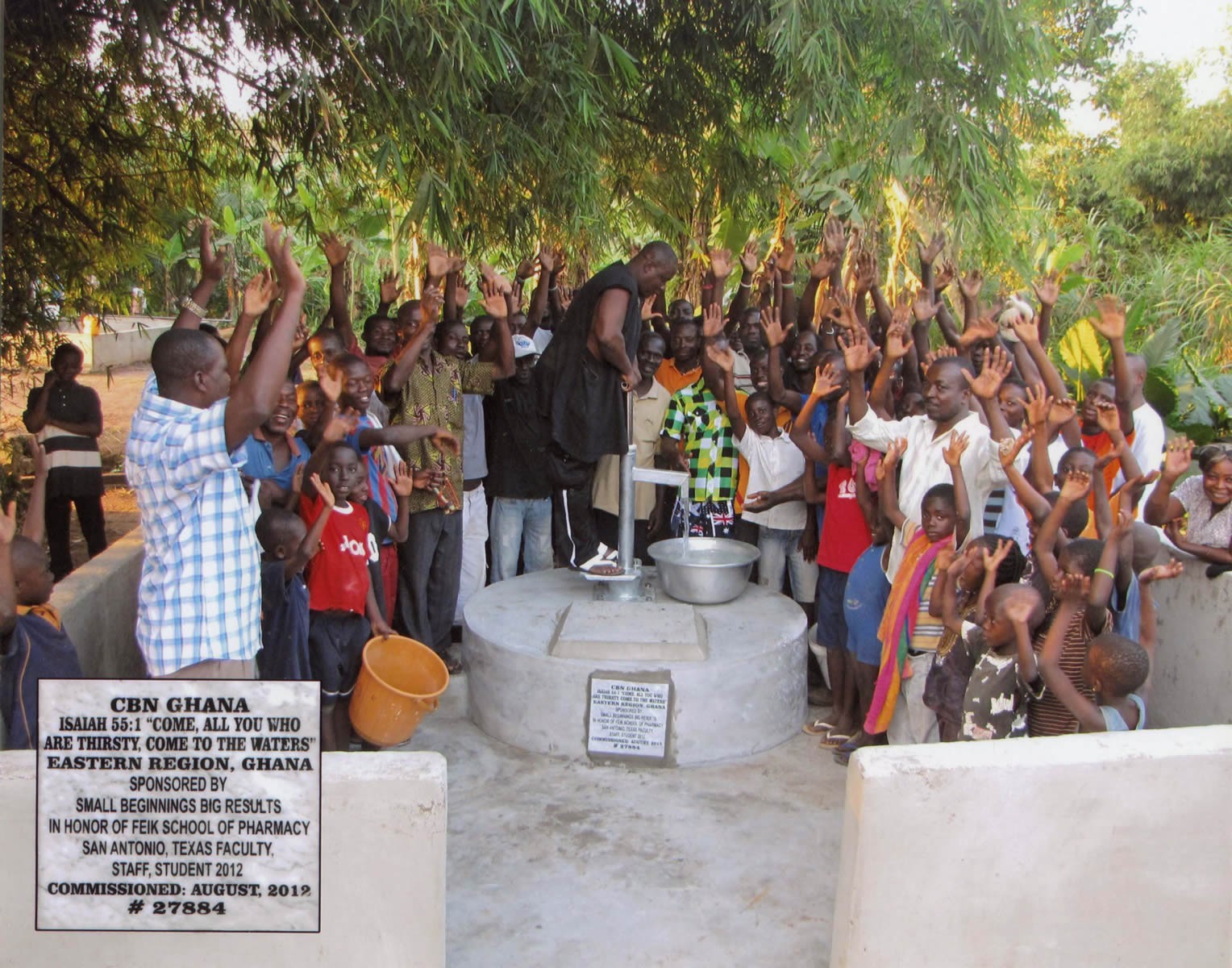
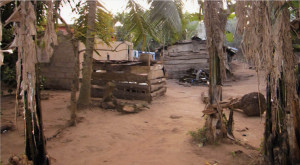

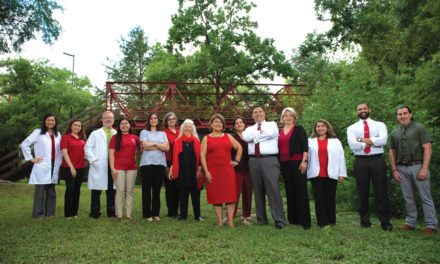
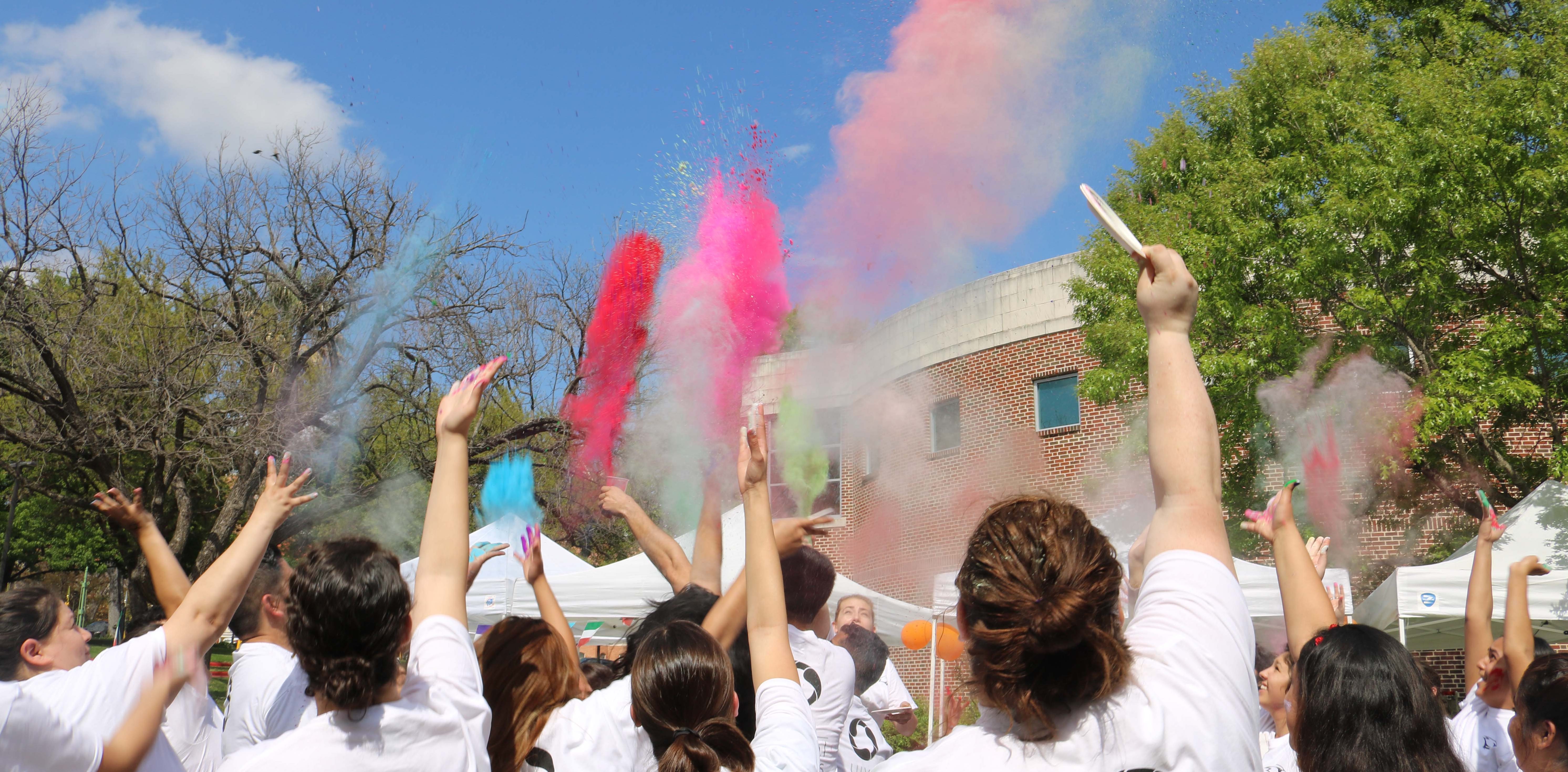
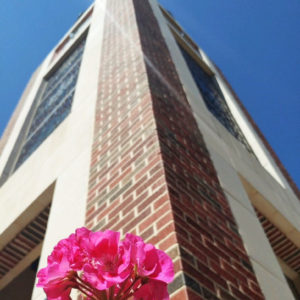




To view the page about the well made possible by the students and faculty of the FSOP, visit http://smallbeginningsbigresults.com/awuku-gua-ghana.html